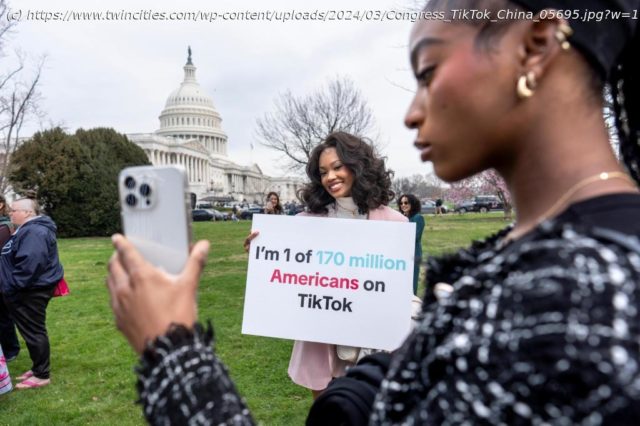Since its inception, TikTok has been intended only for non-Chinese markets, unavailable in mainland China.
By Didi Tang, Associated Press
WASHINGTON If some U.S. lawmakers have their way, the United States and China could end up with something in common: TikTok might not be available in either country.
The House on Wednesday approved a bill requiring the Beijing-based company ByteDance to sell its subsidiary TikTok or face a nationwide ban. It’s unclear if the bill will ever become law, but it reflects lawmakers’ fears that the social media platform could expose Americans to Beijing’s malign influences and data security risks.
But while U.S. lawmakers associate TikTok with China, the company, headquartered outside China, has strategically kept its distance from its homeland.
Since its inception, the TikTok platform has been intended for non-Chinese markets and is unavailable in mainland China. It pulled out of Hong Kong in 2020 when Beijing imposed a national security law on the territory to curtail speech. As data security concerns started to rise in the U.S., TikTok sought to reassure lawmakers that data gathered on U.S. users stays in the country and is inaccessible to ByteDance employees in Beijing.
TikTok’s parent company is following the same playbook as many other Chinese companies with global ambitions: To win customers and trust in the United States and other Western countries, they are playing down their Chinese roots and connections. Some have insisted they be called “global companies” instead of “Chinese companies.”
But for TikTok, this may not be enough. The House bill passed overwhelmingly on a 352-65 vote. Its prospects in the Senate are uncertain, but if it clears both chambers, President Joe Biden said he would sign it into law. The moves in Washington threaten the app’s survival and cast a spotlight on the quandary that many private Chinese companies have found themselves a part of as they seek to engage Western markets at a time of souring U.S.-China relations.
“It’s the most difficult time for Chinese tech companies and private businesses in decades as tensions and rivalry between the United States and China continue to grow,” said Zhiqun Zhu, professor of political science and international relations at Bucknell University.
Home
United States
USA — Political US lawmakers see TikTok as China’s tool, even as it distances itself...






